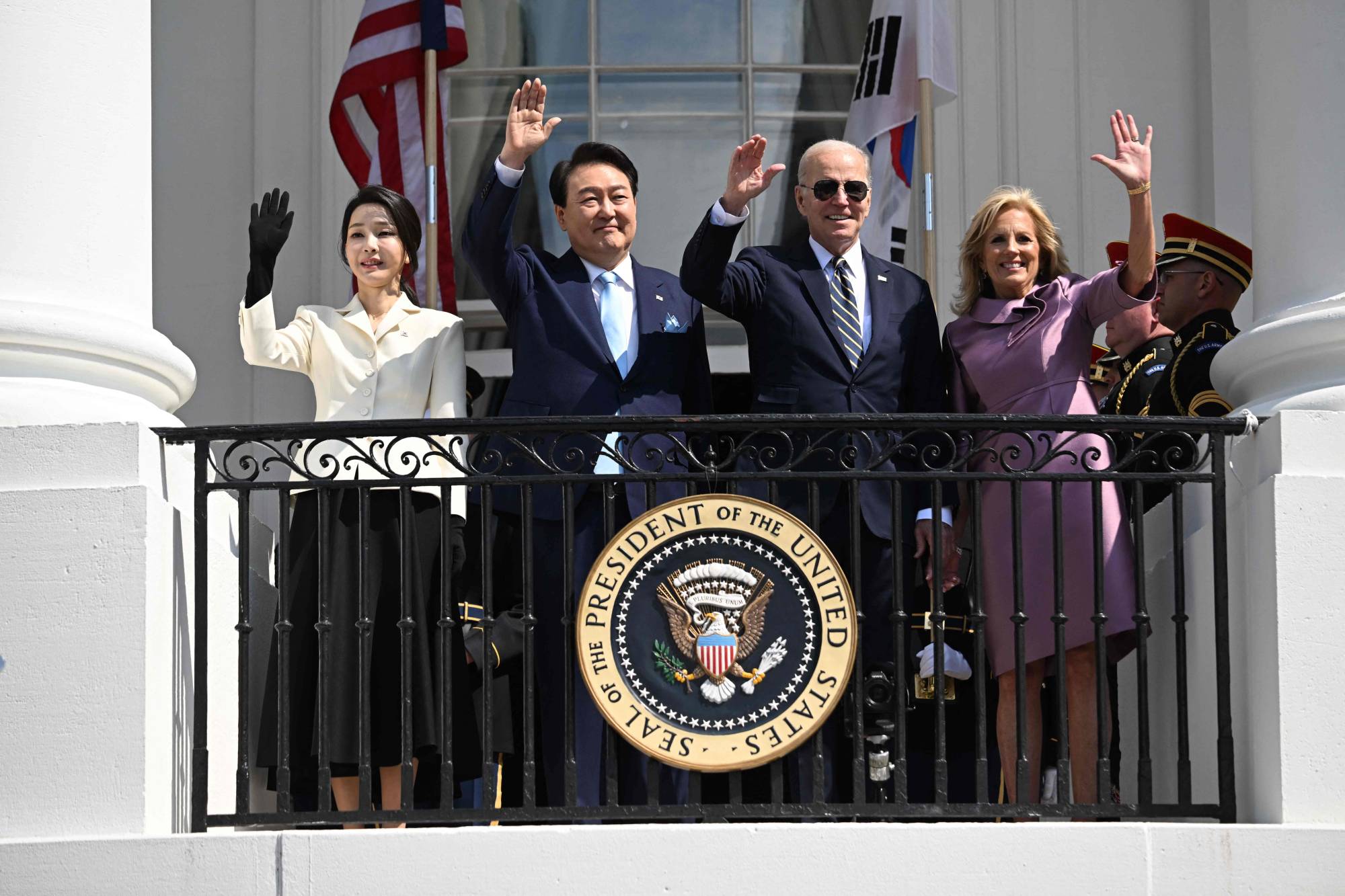Amid growing doubts in South Korea about the credibility of the U.S. nuclear umbrella, Washington and Seoul have agreed on new measures to counter North Korea’s rising nuclear threats, including regular deployments of American strategic assets to the region and closer consultation on U.S. nuclear planning against Pyongyang.
However, analysts question whether the steps outlined Wednesday by U.S. President Joe Biden and South Korean leader Yoon Suk-yeol will be enough to reassure a growing number of South Koreans who believe it is futile to try to persuade Pyongyang to abandon its nuclear arsenal and that it is better for Seoul to respond with its own nuclear weapons.
Outlined in the so-called Washington Declaration, the latest deterrence efforts call for the establishment of a nuclear consultative group (NCG) — modeled on nuclear consultations within NATO — to discuss nuclear and strategic planning, a move that provides Seoul with greater insight into, and presumably also a greater voice in, Washington’s plans for potential nuclear retaliation in the event of a North Korean attack.

















With your current subscription plan you can comment on stories. However, before writing your first comment, please create a display name in the Profile section of your subscriber account page.